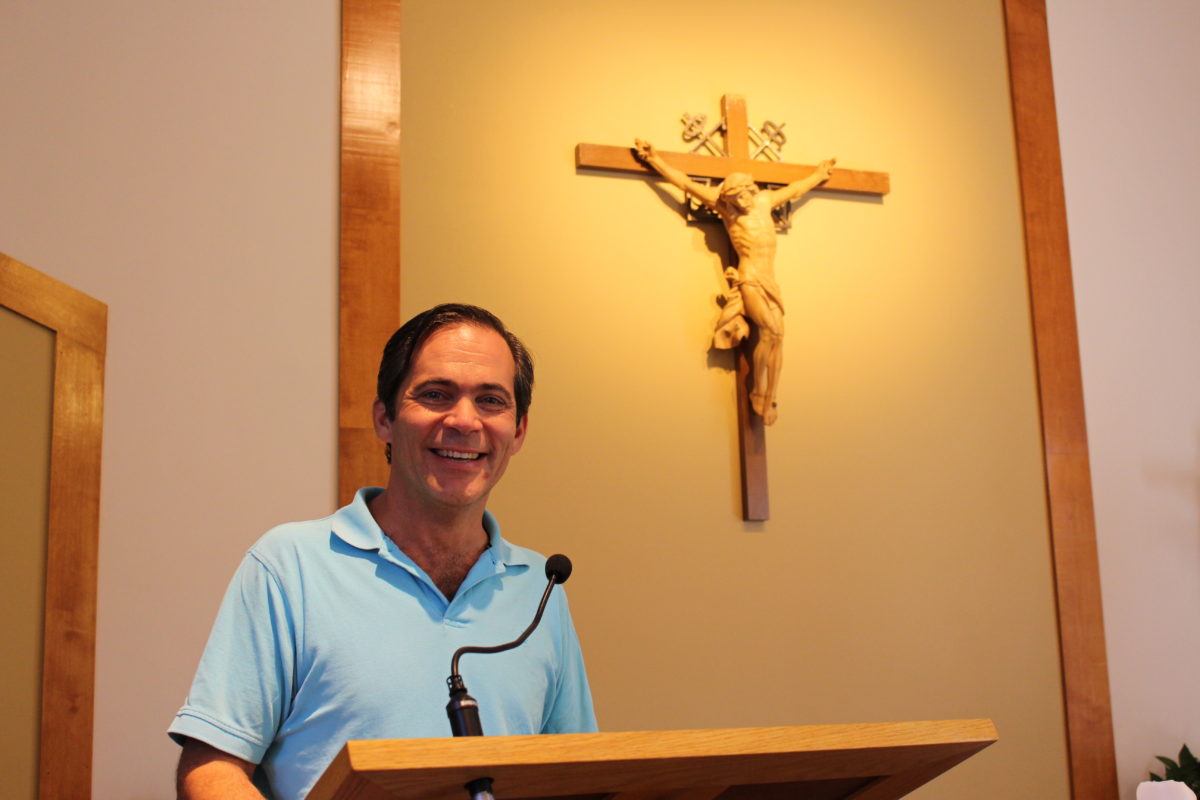
As a liberal arts school, St. Thomas University’s campus ministry is focused on creating a safe environment for students to practice any religion — despite the school’s roots in Catholicism.
Located in Holy Cross House, the ministry boasts a chapel open to students of all faiths.
“The campus ministry offers students the ability to come together without judgement and the ability to express an individual’s belief in transcendence,” said Father Shawn Daley, the campus chaplain.
Daley has been working in ministry since he entered a monastery at the age of 18.

He arrived at STU two years ago to work in the school’s ministry and teach religious studies courses.
As the chaplain, Daley holds mass every Sunday at 7 p.m. and Thursdays at 4:45 p.m. He encourages students of all faiths to attend if they feel that there is something more beyond themselves.
“As long as you believe something, that means there’s a point in which you are willing to dialogue and be with others,” he said.
“The fact that you are willing to enter into dialogue means that you don’t believe that you are, in any way shape or form, superior.”
The ministry also holds an international and multicultural mass on the last Saturday of every month, spoken mostly in Spanish.
Working alongside Father Daley is campus minister Vivien Zelazny. She organizes mass and events like “Theology on Tap” which encourages students to ask questions outside their own religion.
“We are trying to reach out to other faiths with these events, and we’ve seen protestants, atheists, agnostics and Hindus show interest,” Zelazny said.

She is also focusing on making the ministry more visible on campus.
“Our visibility has been lacking in the past, but it is something we are working on,” she said.
“We want to dispel the myth that the ministry is only for the Catholic faith.”
The chapel has been seeing an increase in student attendance for Sunday mass over the past two years, with roughly 30 to 50 students attending weekly.
“I am pleasantly pleased with how many people actually step forward and say, ‘I believe there’s something more. Can you help me?’” Daley said.
The ministry offers the use of the chapel to any religious groups on campus who would like to use it.
“We share a common space, working in good will,” Daley said.
Although St. Thomas University’s religious roots are based in Catholicism, Daley suggested times have changed and the school has become more “mainstream.”
“We need non-judgmental spaces, where people who feel called to more in an indescribable and unfathomable way [can practice],” he said.
“We’re all endowed by that sixth sense and if it’s tingling, you want to share it.”
